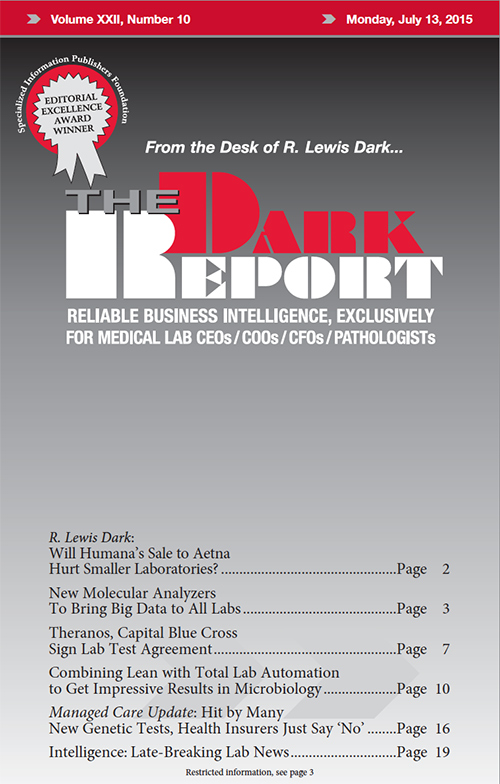CEO SUMMARY: With each passing month, Theranos is looking more like a traditional clinical laboratory company, based on how it is expanding its patient service center network and courier/logistics system into different regions while pursuing managed care contracts with health insurers. Meanwhile, respected laboratory scientists and physicians are using peer-reviewed medical journals to point out that Theranos has yet to publish details about the performance of its diagnostic technology to enable independent validation.
To access this post, you must purchase The Dark Report.


